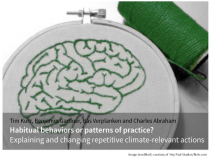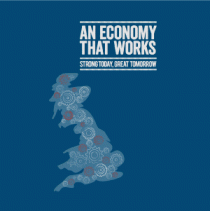- About
- Team
- Projects
- Children and the Environment
- ELiCiT (Exploring lifestyle changes in transition)
- Foundations for Sustainable Living
- HABITs
- Mapping Rebound Effects
- PASSAGE (Prosperity and Sustainability in the Green Economy)
- Policy Dialogue
- Price Responsiveness of Demand in Energy
- Resilience and Sustainable Lifestyles
- Sustainability Transitions in Food Systems
- Sustainable Living in Remote Rural Scotland
- Publications
- News
- Events
Guardians for the future
Where:
University of Surrey, 45B AZ 04
When:
Jul 14 2011 - 13:00
Seminar, 14 July 2011
Dr Rupert Read
University of East Anglia
A policy proposal to take future generations seriously: Strong guardians
Plato said that, if we are to have a just society, we should be ruled by guardians. Habermas and other deliberative-democratic philosophers of course abhor such autocracy. But: what if the guardians were selected democratically, by sortition? And what if their deliberations became in turn a high-profile model of what deliberation in a democratic soc iety could be?
iety could be?
Still, there seems little case for substituting guardians for normal elected representatives, for decisions which can be made about us, by us ourselves or by people who represent us. But: what about cases where the people who ought to be heard in or even to be making the decisions have no voice -- even over matters which are life or death matters for them?
Future people are the most obvious case of such people. I present therefore a broadly Habermasian case for powerful guardians for future people, not only to act so as to give future people standing in the political system, but, and more importantly, to take the formal place occupied in our current political system by the royal assent, and make something meaningful and major out of it: to give future people a real veto (as our kings and queens used to have) over legislation. This would be likely to produce outcomes a lot closer to perfect, or at least a lot further from impending apocalypse, than those provided by our current institutions. For it would give future people not just a proxy voice, but the closest approximation we can give them to a vote, indeed a casting vote, that where necessary comprehensively outvotes us, the people alive today. And after all, this is surely appropriate; for, so long as we bequeath to future people a decent and survivable inheritance, there will over time be a lot more of them than there are of us…
Dr Read's Greenhouse proposal on »Guardians of the Future« can be found here.













